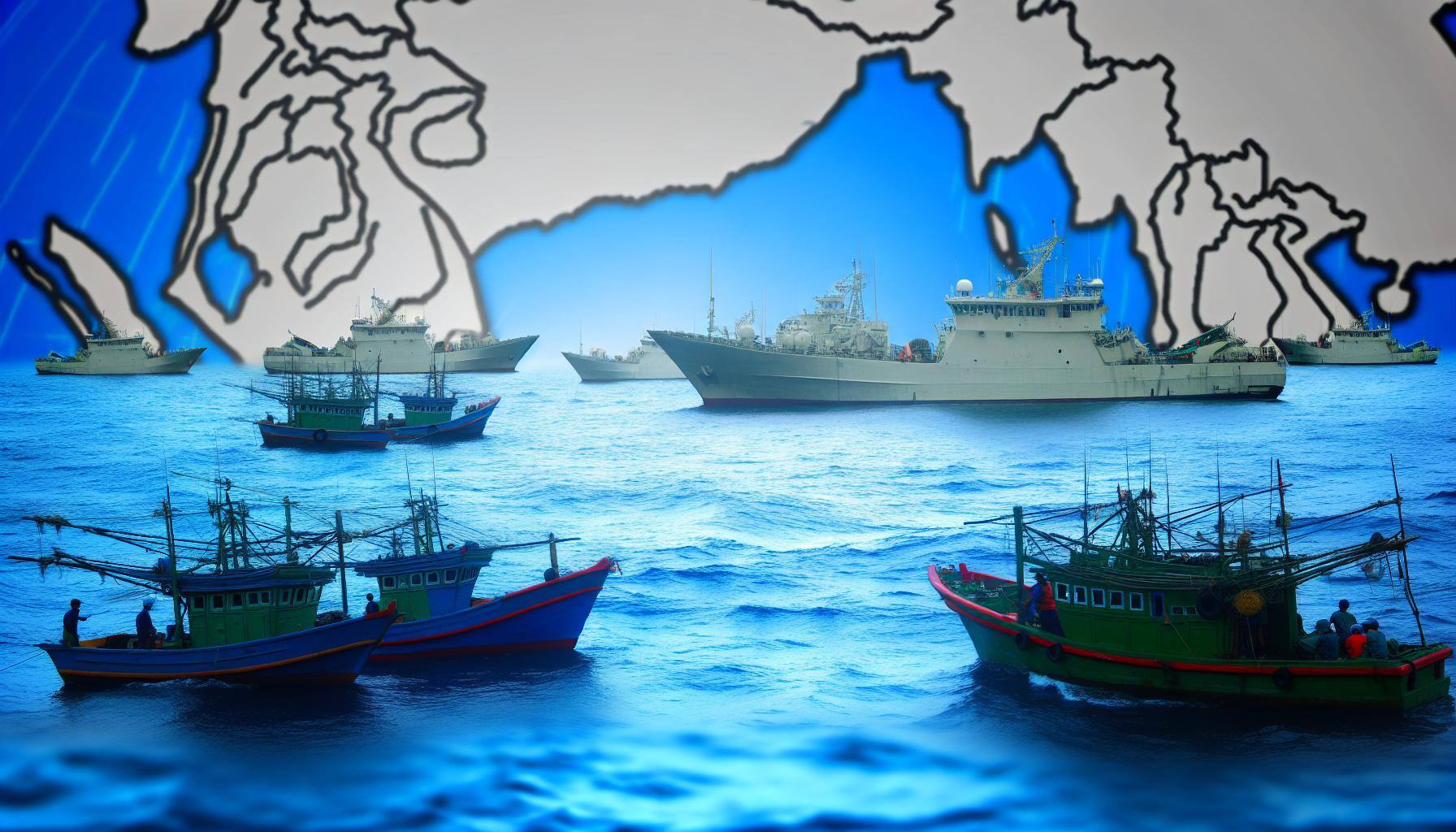The South China Sea (SCS) Code of Conduct (CoC) is on the brink of completion, promising to address long-standing territorial disputes in this vital maritime region.
The overlapping claims by China, Vietnam, Malaysia, the Philippines, Brunei, and Taiwan over areas such as the Paracel and Spratly islands have led to persistent tensions and potential military conflicts. The CoC aims to establish stable relationships among these nations and provide a framework for peaceful conflict resolution.
Military Clashes and Resource Competition
The disputes have led to frequent military skirmishes and clashes between fishing boats, exacerbating regional instability. The SCS is rich in resources, including significant oil reserves and abundant fish stocks, which are crucial for the livelihoods of millions. However, the lack of a cohesive agreement has led to overfishing, environmental degradation, and illegal exploitation of resources, further heightening tensions among the claimant nations.
Lack of Collaborative Management
Currently, the absence of a unified agreement hinders effective collaboration in resource management, disaster response, and tourism development. The proposed CoC offers a structured approach to conflict resolution by providing guidelines for negotiations and resource management principles. This framework could mitigate disputes and foster cooperation among the involved parties.
Progress and Challenges in Formulating the CoC
Progress has been made towards formulating a CoC, which is crucial for transforming the SCS from a zone of conflict to one of stability. However, the process is fraught with challenges, including strained international relationships, complex negotiations, and historical rivalries. Nationalism and volatile political environments further complicate efforts to reach a comprehensive agreement, increasing the risk of minor incidents escalating into major crises.
External Influences and Legal Interpretations
External actors, driven by alliances or economic interests, add another layer of complexity to the SCS disputes. Each nation’s selective interpretation of international law, particularly regarding freedom of navigation and exclusive economic zones (EEZs), creates conflicting viewpoints that impede the establishment of universally accepted rules. Domestic legislative issues, fueled by nationalistic agendas, often hinder compromise and render the negotiation process more challenging.
Building Trust and Cooperation
Trust-building and cooperation are essential for overcoming the obstacles to a successful CoC. The involvement of external powers like the United States further complicates consensus-building, as their interests influence the dynamics of the negotiations. The competition for territorial claims remains a significant barrier to finding common ground. Establishing a consistent legal framework is difficult due to evolving interpretations of international law.
The Role of ASEAN and Future Prospects
The Association of Southeast Asian Nations (ASEAN) plays a critical role in facilitating dialogues and fostering trust among the disputing nations. Open and effective communication is vital for building trust and achieving lasting peace in the region. By engaging in transparent dialogues and maintaining trust, the involved parties can pave the way for improved communication and cooperation.
Conclusion
The completion of the South China Sea CoC holds the promise of transforming the region into a symbol of stability rather than a source of conflict. Achieving this requires sustained efforts in trust-building, cooperation, and open dialogue among all stakeholders. With the active involvement of ASEAN and other external actors, there is hope for resolving the complex disputes and establishing a peaceful and cooperative environment in the South China Sea.





